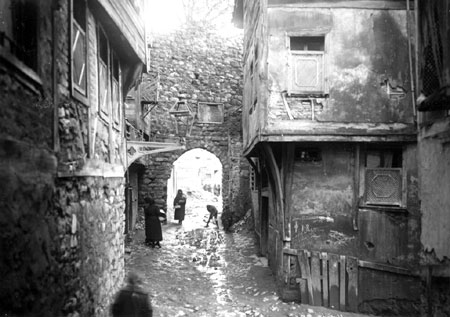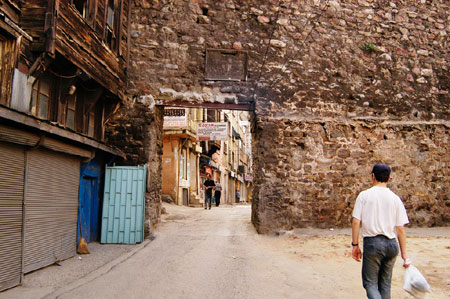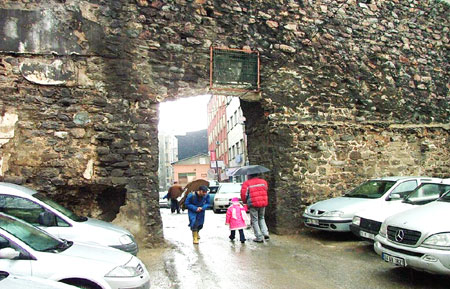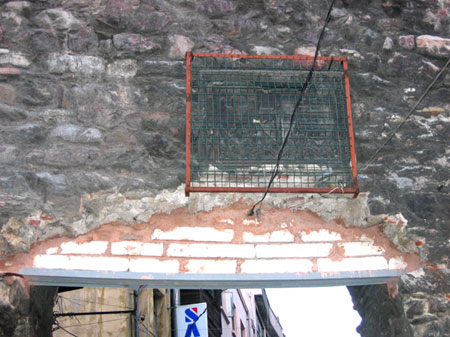The Family Dictionary Project | Galagenova Project | Greek books
Galata also had a significant Jewish population in the past, and using archive music, photographs, an outdoor show was laid out during the period of the Galata festival of 2003, where images of a Jewish wedding of the area, that took place early in the 20th century, were projected onto sheets hanging on lines across streets, intertwined with the audio background of traditional Jewish music and interviews of elder folk who grew up in the area. For a small screen video presentation of this project, in Turkish, click here and for English translation of commentary, hover here.
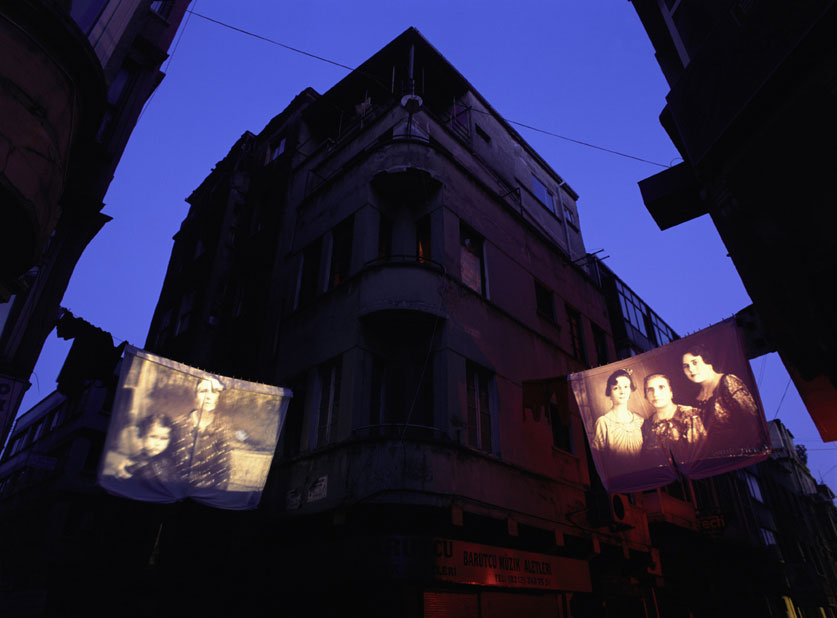 |
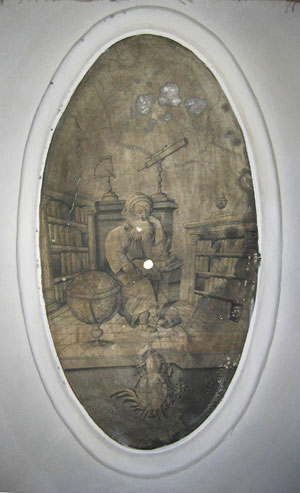 |
The
image on the left is a painting done straight onto the ceiling of ‘Serpus
han’ an old building currently owned by an Armenian vakıf,
near the port of Galata. This is one of the few remaining paintings around
the building, the others being removed earlier as trophies. Nuri is currently
seeking professional advice on the possible nature of this painting, and
the possibility he is currently working on is the depiction of a former
owner or tenant of the building, a ‘müneccim’ [Moslem wise man
who plies his trade with semi-shamanistic clairvoyance] whose customers
could have been mariners, about to sail the treacherous seas, as suggested
by the bookcases, globe and telescope.
According to the art historian Nazende Öztürk, Nuri consulted,
Serpus han was built in the 18th century above the foundations
of a previous Byzantine period building. The mural appears to be done
by a person who didn’t receive training but clearly studied the works
of Renaissance painters, possibly using for inspiration Raphael’s ‘School
of Athens’ painting. The sandals on his feet give the impression
of a classical period philosopher / scientist. There is a strong possibility
that the artist was a person who either came from Rome or went to Rome
to examine such similar paintings there.
To see the exterior and interior shots of this building click here to view short video.
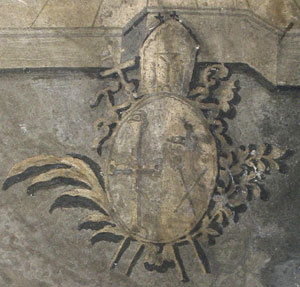 |
Nuri Kaya is a tireless campaigner against shoddy development, and has over the years taken numerous photographs to document the illegal floor additions to buildings (much of it done opportunistically during election periods), and when official agencies acted powerless, has used the press as a leverage for public awareness and has succeeded in the pulling down of one of the worst eye-sores, a 3 story illegal building situated in-front of Galata Tower itself.
The aim of the ‘Galagenova’ project is to reveal the character of Galata, create an official link with the city of Genoa in terms of academic exchange or in the manner of twinned communities. The long term aspiration is the creation of an internationally supported and funded restoration project to preserve the unique architectural heritage of the neighbourhood.
Unfortunately in the recent past (early 2006), an important symbol of the Genoese past of Galata accidentally received damage from the raised excavator bucket of a digger belonging to the municipal natural gas firm (İgdaş). The repair work effectively further damages this sole remaining gate of the former walls enclosing this ancient quarter. Nuri Kaya is effectively the sole person who has considered this act as unacceptable and as part of his campaign to raise awareness of this disfigurement, is currently (June 2006) helping compose a news piece in one of the national newspapers (Sabah). Further information on this gate, Yanıkkapı [burnt gate] follows:
1- The armorial above Yanıkkapı (facing Harup street) is centred with the cross of St. George of the city of Genoa, surrounded with the coat-of-arms of the Meruda and Doria families. The most famous representative of the Doria family was the famous Admiral Andrea Doria from the 16th century.
2- Yanıkkapı represents one of the few sections of the old city walls that once stretched for 2.8 km, including the Galata tower. The vast majority of the walls were pulled down in 1864 with a view to hasten construction development in the neighbourhood.
3- Yanıkkapı represents the sole remaining gate from this period of levelling and is an inner gate. Thus it is an important physical link to the medieval quarter of Galata and has been used continuously as a gate of sorts for well over 600 years.
|
|
||
|
|
